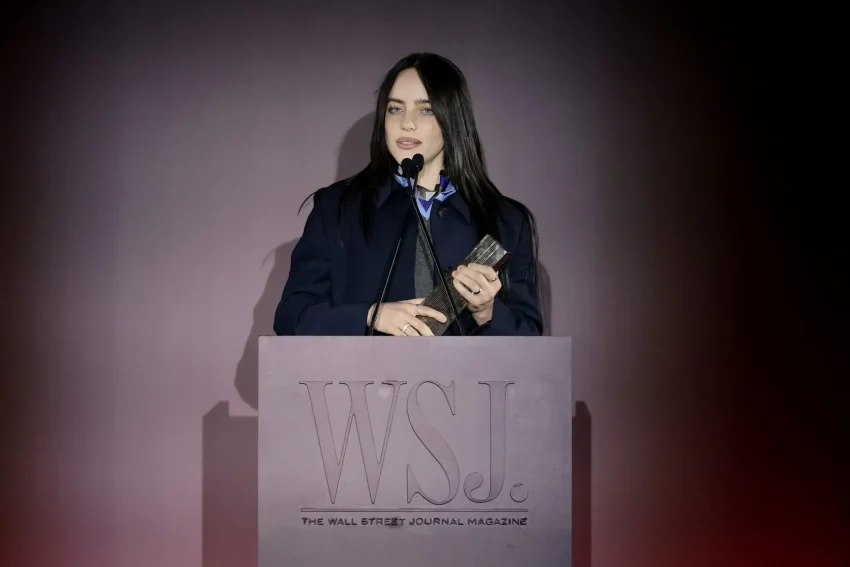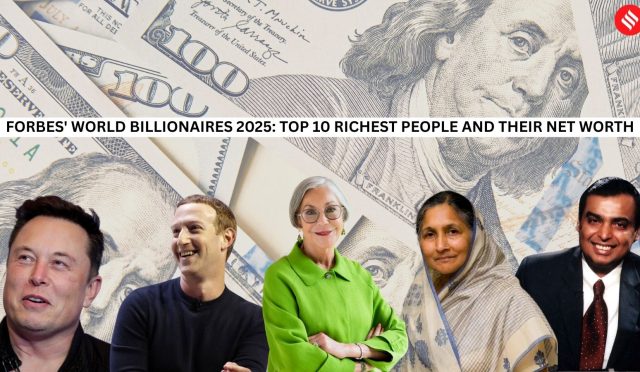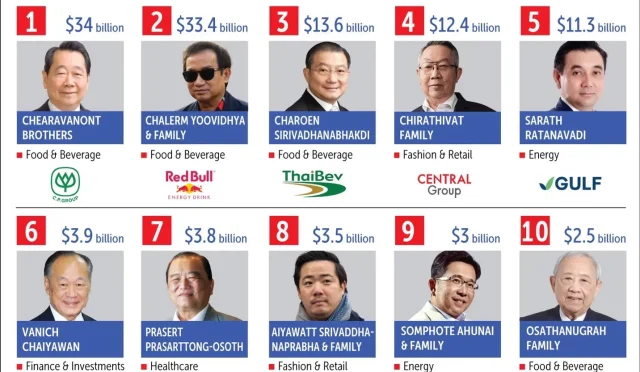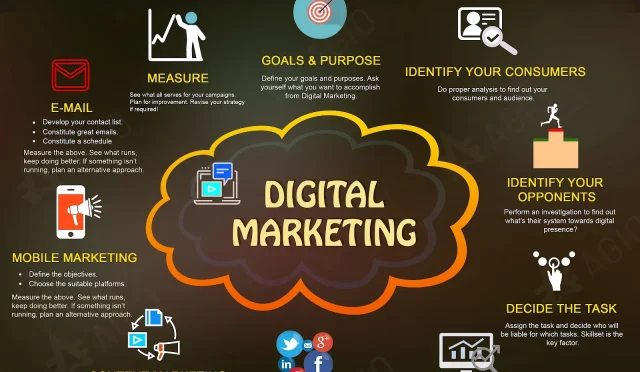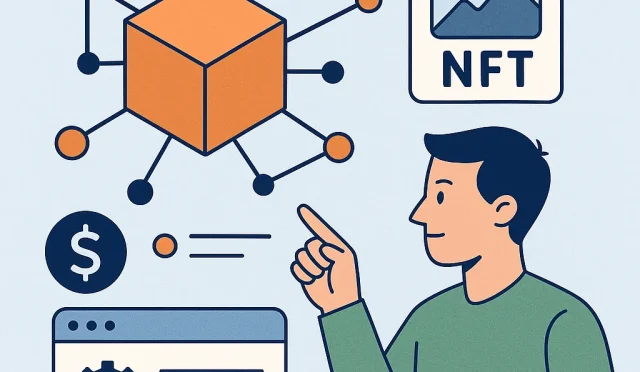Billie Eilish has become a powerful voice urging billionaires to take their roles in addressing wealth inequality more seriously. At the recent WSJ Magazine Innovator Awards, the Grammy and Oscar-winning artist made an inspiring call for philanthropic action among the ultra-wealthy, pointing out the urgent need for charitable donations to relieve pressing global issues. “We’re in a time right now where the world is really, really bad and really dark,” Eilish stated, emphasizing the role of empathy and financial support in combating these challenges. Her own contributions, including a staggering $11.5 million from her tour profits towards food equity and climate justice, highlight her commitment to wealth distribution. As part of a broader conversation on philanthropy, Eilish’s candid remarks on the moral obligations of billionaires resonate with the goals of the Giving Pledge and underscore the importance of concerted efforts to rectify societal imbalances.
In her influential position, Billie Eilish champions the need for ultra-wealthy individuals to engage in philanthropic efforts aimed at mitigating the deepening divide of wealth in today’s society. By emphasizing the detrimental impact of wealth concentration, she encourages high-net-worth individuals to recognize their responsibility in fostering social change. This call to action is certainly reflective of a growing trend where artists and celebrities advocate for more equitable wealth distribution and transparency in charitable initiatives. Eilish’s stance echoes the principles established by the Giving Pledge, where billionaires commit to donate a significant portion of their fortunes for the greater good. As discussions around wealth inequality and the moral imperative for charitable donations become increasingly important, Eilish shines a light on the potential for philanthropy to drive impactful change.
Billie Eilish and the Call for Billionaires’ Contributions
During a recent award ceremony, Billie Eilish took a bold stance, urging billionaires to reassess their roles in addressing pressing global issues. As the youngest winner of both Grammy and Oscar awards, Eilish’s voice resonates powerfully in today’s society. She highlighted a critical need for empathy and action from the wealthiest individuals, expressing concern that many vulnerable communities are facing unprecedented challenges. Her appeal underscores the view that with great wealth comes great responsibility, especially during times of crisis.
Eilish’s passionate plea for billionaires to contribute more was not just a personal sentiment but a rallying cry for collective action among the super-rich. By suggesting that wealth can and should be used for societal benefit, she aligns her message with historical calls for philanthropy. This aligns with the Giving Pledge movement initiated by influential billionaires like Bill Gates and Warren Buffett, which challenges their peers to donate at least half of their wealth during their lifetime. As Eilish noted, ‘If you’re a billionaire, why are you a billionaire?’ This provocative question is vital in sparking conversations about wealth distribution and philanthropy.
Philanthropy and Wealth Inequality: Bridging the Gap
Billie Eilish’s comments reflect a broader recognition of severe wealth inequality, especially in the United States, where the disparity between the rich and the poor continues to widen. Recent reports show that many billionaires are accumulating wealth at an unprecedented rate, often ignoring the plight of those who struggle to make ends meet. Eilish’s emphasis on charitable donations as a mechanism to combat inequality stresses the importance of giving back, especially from those at the top of the economic ladder. The reality is that without a commitment to better wealth distribution, the impacts of poverty and suffering will persist.
Philanthropy, while beneficial, is frequently seen as a Band-Aid solution to systemic issues of wealth inequality. Experts like Chuck Collins argue that true change requires not only generous donations but structural changes in how wealth is taxed and how economic resources are allocated. The expectation set by initiatives like the Giving Pledge can drive competition among billionaires to donate, yet the truth remains that these pledges often fail to keep pace with the rising fortunes of their creators. As we contemplate the future of philanthropy in the face of increasing economic divides, it becomes clear that more aggressive strategies are essential.
The Role of the Giving Pledge in Modern Philanthropy
Launched in 2010, the Giving Pledge has witnessed participation from a growing number of billionaires, uniting them around the idea of donating the majority of their wealth to charitable causes. This initiative was inspired by Andrew Carnegie’s vision in his essay ‘The Gospel of Wealth,’ advocating for the affluent to give back during their lifetimes. While the concept supports a culture of generosity, the actual implementation has met with challenges. Recent findings show that while 256 billionaires have signed the pledge, only a small fraction has effectively fulfilled their commitment.
Critics argue that the Giving Pledge highlights the disparity in wealth management among the super-wealthy, who may not be distributing their fortunes as effectively as promised. This highlights a growing sentiment echoed by Billie Eilish: that philanthropy cannot substitute for systemic reform. Many billionaires have become wealthier over time, often negating their contributions meant to combat wealth inequality. Only addressing surface issues through charity will not tackle the root causes of social inequities; a reimagined tax system is crucial for fostering equitable wealth distribution.
Billionaires and Social Responsibility: A Critical Perspective
Billie Eilish’s remarks resonate with a increasing discourse on the social responsibilities of billionaires. In today’s calamity-ridden world, the expectation that those with substantial resources should step up is more pronounced than ever. Her questioning of why billionaires hoard wealth when so many need assistance challenges conventional views about wealth accumulation. As the gap between the rich and the poor widens, Eilish’s call for action serves as a poignant reminder that true social responsibility involves addressing the needs of the community they thrive in.
Historical figures like Carnegie and contemporary philanthropists engage in a longstanding narrative that promotes giving back. However, the current climate shows that philanthropy alone cannot solve systemic problems rooted in economic inequality. It highlights the need for billionaires to leverage their wealth not only for charitable donations but also to invest in initiatives that challenge societal structures and foster long-term change. As Eilish poignantly states, the time for action is now, underscoring a vital shift towards accountability among society’s elite.
Billie Eilish’s Initiatives in Philanthropy
In addition to her striking public appeals, Billie Eilish is actively engaged in philanthropy through her initiatives such as the Changemaker Program. Collaborating with organizations like Reverb’s Music Climate Revolution, she integrates her passion for music and advocacy to create awareness and drive change in critical areas such as climate justice and food equity. By donating millions from her tour profits to these causes, Eilish illustrates a personal commitment to making a tangible difference.
Her philanthropic work aligns with a growing movement among artists and public figures to use their platforms for social good. Eilish’s efforts not only contribute to immediate needs but also signal to other billionaires the importance of their involvement in addressing societal disparities. As the number of billionaires continues to grow, the expectation for meaningful contributions toward solving global issues, as emphasized in her powerful speeches, remains paramount for progress in wealth distribution and philanthropy.
Exploring the Impact of Wealth Distribution
The conversation surrounding wealth distribution is increasingly relevant in discussions about economic equity and philanthropy. Eilish’s comments serve as an invitation to rethink the conventional narrative surrounding wealth, particularly in a world where billionaires are flourishing while many face economic hardship. By advocating for greater charitable donations from the wealthy, she raises important questions about the future of philanthropy and the ethical implications of wealth accumulation in an age of disparity.
The impact of wealth distribution is not merely theoretical; it directly affects society’s most vulnerable. The stark realities of hunger, poverty, and insufficient resources expose the limitations of voluntary philanthropy. As we see billionaires rapidly grow their fortunes, reflects the urgent need for robust policies to reform the economic landscape. Eilish’s advocacy invites a deeper analysis of how wealth can be redistributed effectively, aiming for a system that ensures every individual has access to basic needs and opportunities.
Philanthropy as a Bipartisan Issue
The issue of philanthropy and its role in society transcends political boundaries, uniting voices from across the spectrum around the vital need for action from the wealthy. Billie Eilish’s appeal to billionaires reflects a growing sentiment that urges collective responsibility regardless of political affiliation. This recognition that charitable contributions are necessary in addressing pressing societal issues fosters an understanding that tackling wealth inequality requires a unified approach.
As seen in partnerships among various philanthropists and initiatives like the Giving Pledge, the commitment to generosity extends beyond party lines. The challenges posed by wealth inequality and social issues are not confined to any political ideology; thus, the need for billionaires to engage in charitable activities can inspire broader coalitions for change. Eilish’s call for action epitomizes the belief that tackling these issues should transcend politics and prioritize humanity’s collective welfare.
Fostering a Culture of Giving
Fostering a culture of giving is essential to overcoming the barriers posed by wealth inequality, and individuals like Billie Eilish are at the forefront of this movement. Her public advocacy calls for the wealthy to rethink their obligations towards society, urging them to consider philanthropy not merely as an act of generosity, but as a moral imperative. This shift in perspective could significantly alter how wealth is viewed in society, leading to more equitable outcomes for all.
Eilish’s contributions to this culture of giving inspire others and challenge the super-rich to reconsider their relationship with their wealth. By encouraging billionaires to contribute more through direct outreach, she sets a powerful example of how influence can be wielded to foster a spirit of altruism. As more individuals adopt this mindset, the hope for systemic change in wealth distribution becomes more tangible, paving the way for a more equitable society.
The Future of Philanthropy: A Call for Accountability
Looking to the future, the call for accountability in philanthropy has never been more urgent. Eilish’s direct appeal not only highlights the critical role of wealthy individuals but also serves as a litmus test for the effectiveness of current philanthropic efforts. As billionaires are encouraged to contribute part of their fortunes through initiatives like the Giving Pledge, the results of these efforts will need to be closely monitored to assess their impact on closing the wealth gap.
Accountability in philanthropy is vital to ensuring that the contributions made by the ultra-wealthy have a meaningful and lasting effect. As society faces a growing crisis of wealth inequality, the expectation for billionaires to do more becomes increasingly critical. Eilish’s remarks provide a hopeful yet challenging framework for ongoing dialogue about wealth distribution and philanthropy in the years to come.
Frequently Asked Questions
What are Billie Eilish’s contributions to philanthropy regarding billionaire donations?
Billie Eilish has been vocal about the need for billionaires to contribute more towards societal issues. During her acceptance speech at the WSJ. Magazine Innovator Awards, she urged billionaires to use their wealth for good, especially highlighting the importance of addressing pressing global challenges. Eilish has committed to donating $11.5 million from her tour profits to initiatives focused on food equity, climate justice, and carbon pollution reduction.
How does Billie Eilish address wealth inequality among billionaires?
Billie Eilish’s comments on wealth inequality emphasize the responsibility of billionaires to assist those in need. She questioned the rationale behind their immense wealth, urging them to think about the hardships faced by people during challenging times. Her advocacy aligns with a broader call for increased billionaire contributions to combat wealth inequality and promote social justice.
What is the Giving Pledge and how does it relate to Billie Eilish’s views?
The Giving Pledge is a commitment established by notable billionaires like Bill Gates, Melinda French Gates, and Warren Buffett, suggesting that billionaires should donate over half their wealth during their lifetimes. Billie Eilish supports this concept, encouraging wealthy individuals to fulfill their pledges and use their resources to positively impact communities facing urgent issues, echoing the principles behind the Giving Pledge.
Why does Billie Eilish believe billionaires should donate their wealth?
Billie Eilish believes billionaires should donate their wealth due to the increasing number of individuals in need and the urgent societal challenges present today. In her speech, she emphasizes that with great wealth comes great responsibility, and it is crucial for billionaires to give back to society, especially during times of crisis.
What specific causes does Billie Eilish support through her charitable donations?
Billie Eilish focuses her charitable donations on causes related to food equity, climate justice, and reducing carbon pollution. By allocating $11.5 million from her tour profits to these issues, she demonstrates her commitment to philanthropy and the importance of addressing pressing global concerns.
How can philanthropic efforts help address wealth distribution issues according to Billie Eilish?
Billie Eilish highlights that philanthropic efforts, particularly by billionaires, can play a significant role in addressing wealth distribution issues. By prioritizing donations to critical societal problems, such as poverty and climate change, wealthy individuals can help distribute resources more equitably, championing a shift towards a fairer society.
What impact does Billie Eilish’s activism have on the conversation about billionaire contributions?
Billie Eilish’s activism adds a youthful and influential voice to the discussion around billionaire contributions, urging the ultra-wealthy to reconsider their roles in combating societal challenges. Her calls for action prompt reflection among billionaires and inspire a broader dialogue about philanthropy’s role in addressing systemic issues, such as wealth inequality.
What does the increasing number of billionaires signify for charitable donations, according to the recent reports?
The increase in billionaires, as noted in Oxfam’s report, raises concerns about wealth concentration and the need for effective charitable donations. As billionaires accumulate wealth faster than ever, it underscores the importance of encouraging them to engage more actively in philanthropy to help address social and economic inequalities globally.
| Key Point | Details |
|---|---|
| Billie’s Call for Action | Billie Eilish urged billionaires to contribute more to societal issues during her acceptance speech. |
| Empathy and Support Needed | Eilish stressed the importance of empathy and help, particularly in challenging times. |
| Personal Donations | She announced a donation of $11.5 million from her tour profits to support food equity and climate justice. |
| Billionaires’ Responsibilities | Eilish called for billionaires to evaluate their wealth and consider giving back. |
| Historical Context | Referencing historical calls to donate, Eilish aligns with the tradition of wealth redistribution advocated by figures like Andrew Carnegie and the Giving Pledge. |
| Challenges in Philanthropy | Report highlights slow progress in billionaire donations and a need for structural changes in wealth distribution. |
Summary
Billie Eilish’s contributions call on billionaires to engage more actively in philanthropy. The Grammy and Oscar-winning artist passionately voiced the need for those with immense wealth to address the urgent societal challenges we face today. By leveraging her fame and financial resources, Eilish not only sets an example through her actions but also encourages others in the billionaire class to follow suit. This movement highlights a critical conversation about wealth distribution and the responsibility of the ultra-wealthy in fostering positive change in the world.

